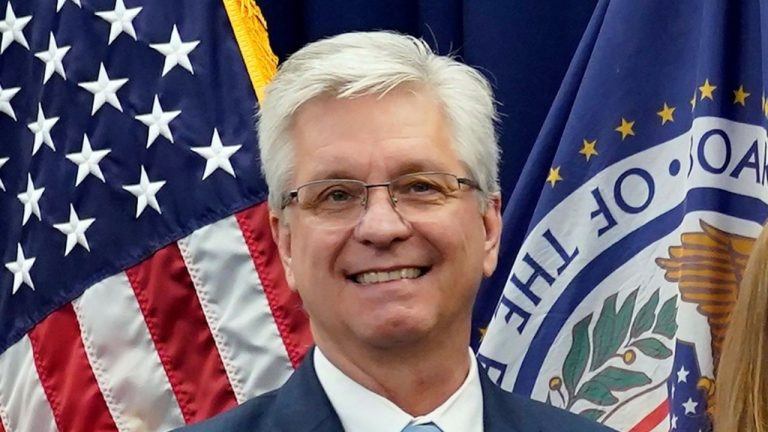AfDB Approves $100m Youth Bank for Nigeria After Adesina Slams Commercial Banks for Failing Young Entrepreneurs
The African Development Bank (AfDB) has approved a $100 million investment for the creation of the Nigerian Youth Entrepreneurship Investment Bank, a new financial institution dedicated to empowering young entrepreneurs across the country and the wider African continent.
The announcement came during the 14th Convocation Lecture of the National Open University of Nigeria (NOUN) in Abuja, where AfDB President Dr. Akinwumi Adesina took a direct swipe at Nigeria’s banking sector. The convocation lecture was chaired by former INEC Chairman, Prof. Attahiru Jega, who lauded Adesina as “one of the continent’s most visionary leaders,” adding that his work at AfDB is helping to reframe how Africa approaches development—no longer as a series of aid-dependent crises, but as a continent with the capacity to chart its own course.
In a blunt rebuke, Adesina accused commercial banks in Nigeria and across Africa, of systematically locking out the very group whose ingenuity and innovation are critical to the continent’s future.
Register for Tekedia Mini-MBA edition 17 (June 9 – Sept 6, 2025) today for early bird discounts. Do annual for access to Blucera.com.
Tekedia AI in Business Masterclass opens registrations.
Join Tekedia Capital Syndicate and co-invest in great global startups.
Register to become a better CEO or Director with Tekedia CEO & Director Program.
“The commercial banking system, the financial system, has failed young people in Africa,” Adesina said.
It was against that backdrop that the $100 million youth bank was announced. For Adesina, this wasn’t merely a policy intervention—it was a direct response to what he described as a financial system that has become unfit for purpose, especially in a continent where youth entrepreneurship is exploding but support is nearly nonexistent.
“Young people don’t lack ideas—they lack support,” he said, noting that across Africa, 22% of the working-age population is engaged in entrepreneurial activity, the highest rate in the world according to the Global Entrepreneurship Monitor (2020). Yet access to capital, particularly for startups and early-stage ventures, remains staggeringly low.
The new youth bank, according to Adesina, will offer a mix of debt and equity financing, alongside tailored technical assistance and business development services. It will serve as a platform for young entrepreneurs to not only secure the funding they need but also build the skills and networks necessary to scale their businesses sustainably.
Sectors earmarked for support include agriculture, retail, services, and especially technology. Africa’s digital economy alone, Adesina said, is projected to contribute $180 billion to the continent’s GDP by 2025, rising to $712 billion by 2050 if adequately harnessed.
But it won’t stop there. The AfDB also reaffirmed its support for the Investment in Digital and Creative Enterprises (iDICE) programme—a $614 million initiative backed by a consortium that includes the Agence Française de Développement (AFD), the Islamic Development Bank, and Nigeria’s Bank of Industry. The iDICE programme is expected to inject $6.4 billion into the Nigerian economy and create over six million jobs, targeting small and medium-sized businesses in Nigeria’s vibrant tech and creative sectors.
Still, Adesina made it clear that financing without education would only take the continent so far. He warned that Africa continues to lag dangerously behind in education, especially in science and technology, putting the region at risk of being left behind in the race toward the Fourth Industrial Revolution.
He painted a stark picture, noting that only 43% of African youth complete secondary education, compared to 98.9% in Japan. Just 10% go on to higher education in Africa, while Japan sees a 60% enrollment rate. Even among university students, only about 25% in Africa are pursuing degrees in STEM fields, trailing Japan’s 30%.
To address this knowledge gap, the AfDB, in partnership with the African Union, is launching a $300 million African Education, Science and Technology Innovation Fund. The fund will be channeled into building expertise in artificial intelligence, robotics, cloud computing, and other emerging technologies—areas that will define the jobs and economies of the future.
“The future of Africa cannot be built on low-level skills and outdated industries,” Adesina said. “We must build a new foundation anchored on education, science, innovation, and entrepreneurship.”
His call for change extended beyond banks and classrooms. He urged African governments to adopt a new development mindset—one focused on resilience, energy infrastructure, mineral resource value chains, and self-reliance.
“Africa has no buffers,” he said, lamenting the continent’s repeated vulnerability during global shocks, from pandemics to commodity price swings. He criticized the long-standing reliance on raw material exports and emphasized the need to process and add value locally.
His remarks came at a time when Nigeria’s economy remains under pressure. Youth unemployment is high, inflation is running hot, and structural bottlenecks—from electricity to infrastructure—continue to suppress productivity. Commercial banks, meanwhile, have largely prioritized lending to large corporations and high-net-worth individuals, with startups and small businesses left to scramble for survival.
Many young Nigerian innovators have long complained of opaque lending conditions, collateral requirements they cannot meet, and a hostile credit environment that rewards speculation over innovation.
The Youth Bank, therefore, is more than just a financial tool. It is an attempt to correct a system that has for too long ignored those who carry the burden of Africa’s future. It also signals that the AfDB, under Adesina’s leadership, is pivoting from abstract economic theories to institution-building—designed to unlock productivity and scale across the continent.
For Nigeria, where over 60% of the population is under 25, the fund is expected to boost the economy through entrepreneurship. If implemented effectively, the bank could serve as a model for other African nations grappling with similar demographic and financial inclusion challenges.



